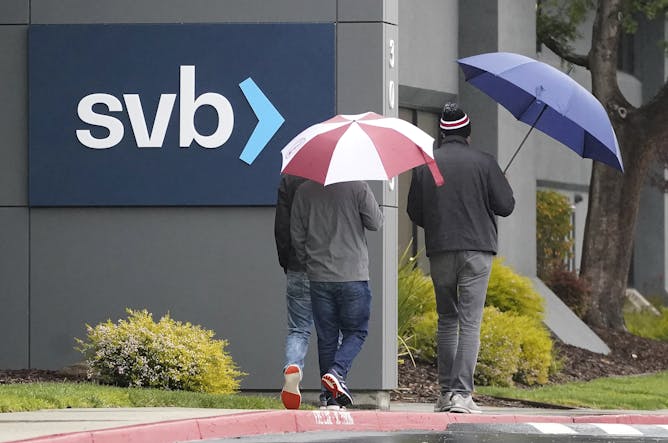|
|
|
|
Winnipeg recently proposed redesignating streets named after Bishop Vital-Justin Grandin with Indigenous names. Grandin was a Catholic priest and proponent of residential schools. But the proposal has faced some pushback, including from some who say these new names are too difficult to pronounce: Abinojii Mikanah, Awasisak Mēskanow and Taapweewin Way.
Replacing colonial-era names with Indigenous ones isn’t new to Canada — British Columbia’s Queen Charlotte Islands were renamed Haida Gwaii back in 2010. And many places across Canada, including major cities, have Indigenous names.
So, what’s behind claims Indigenous names are hard to pronounce?
Today in The Conversation Canada, Nicole Rosen from the University of Manitoba discusses why English-speakers find certain words difficult to pronounce and offers some tips to help us learn them. She writes: “Language matters, and changing a few of our street signs from colonial languages like English and French to Indigenous languages like Cree, Ojibwe and Michif is a small act of reconciliation that can have a meaningful impact.”
Also today:
All the best,
|

|
Ibrahim Daair
Culture + Society Editor
|
|

The City of Winnipeg has proposed roads named after Bishop Vital-Justin Grandin be renamed with Indigenous names.
(Google Street view)
Nicole Rosen, University of Manitoba
Some have claimed the proposed new Indigenous names for Winnipeg streets are too difficult to pronounce. But what does it mean when we say a word is hard to pronounce?
|

An earthquake-triggered tsunami sweeps shores along Iwanuma, Miyagi prefecture, northern Japan, March 11, 2011.
(Kyodo News via AP, File)
Chris Myhr, McMaster University
Images of the 2011 tsunami did not look as I had expected, and pointed to the sublime, when experience exceeds our frameworks of understanding. My exhibit ‘Salients’ treats this theme.
|

Former President Donald Trump reacts to the crowd after he finished speaking at a campaign rally in support of Sen. Marco Rubio in Miami in November.
(AP Photo/Rebecca Blackwell)
Daniel Drache, York University, Canada; Marc D. Froese, Burman University
The newest class of right-wing populists aims to not only dismantle the guardrails of democracy, but also the most fundamental principles of the rule of law. We must prepare.
|

Over the past decade, a number of companies, think tanks and institutions have developed responsible innovation initiatives to forecast and mitigate the negative consequences of tech development. But how successful have they been?
(Shutterstock)
Marcel O'Gorman, University of Waterloo
When OpenAI claims to be “developing technologies that empower everyone,” who is included in the term “everyone?” And in what context will this “power” be wielded?
|

To find out how well social scientists can predict societal change, researchers ran the largest forecasting initiative in the field’s history. Here’s what they found.
(Shutterstock)
Igor Grossmann, University of Waterloo; Cendri Hutcherson, University of Toronto; Michael Varnum, Arizona State University
A sobering picture emerges from a study testing social scientists’ ability to predict societal change during the COVID-19 pandemic.
|

Heart-healthy approaches to eating include the Mediterranean diet, the DASH diet and the Portfolio diet.
(Shutterstock)
Shannan M. Grant, Mount Saint Vincent University; Andrea J. Glenn, Harvard University; Dayna Lee-Baggley, Dalhousie University
Research shows the key to changing your diet is focusing on changing eating habits and food behaviours, one at a time.
|

Silicon Valley Bank, the sixteenth-largest bank in the U.S., collapsed on March 10, 2023 after customers tried to collectively withdraw $42 billion in a single day.
(AP Photo/Jeff Chiu)
Yuhao Zhou, Western University; Cristián Bravo, Western University
The collapse of Silicon Valley Bank serves as a reminder of the importance of robust risk management, sound regulatory oversight and effective liquidity management.
|
La Conversation Canada
|

Bien que la vue et le goût soient les principaux sens par lesquels les serpents perçoivent leur environnement, notre étude permet de constater que l’ouïe joue un rôle important dans le répertoire sensoriel des serpents.
(Christina Zdenek)
Christina N. Zdenek, The University of Queensland
Les spécialistes savent depuis longtemps que les serpents peuvent ressentir les vibrations sonores dans le sol. Or, une nouvelle étude démontre qu’ils peuvent également percevoir les sons aériens.
|
Business + Economy
|
-
Michel Wieviorka, Auteurs historiques The Conversation France
France’s trade unions have managed to galvanise the largest movement in decades in opposition to pension reform. What will happen to them once the bill has been passed or abandoned?
|
|
Education
|
-
Markus Klein, University of Strathclyde ; Edward Sosu, University of Strathclyde
Persistent absence means missing 10% or more of classes.
|
|
Politics
|
-
Stefan Schmitt, Florida International University
The International Criminal Court issued its first arrest warrants for Russians allegedly responsible for war crimes in Ukraine.
-
Chantelle Gray, North-West University
The political content in our personal feeds not only represents the world and politics to us. It creates new, sometimes “alternative”, realities.
|
|
|
|
| |
| |
| |

|
| |
| |
| |
| |
| |
| |
|
|
|
|
|
|
|